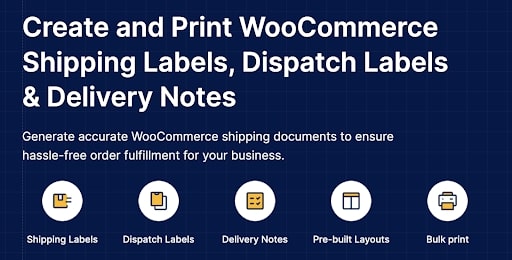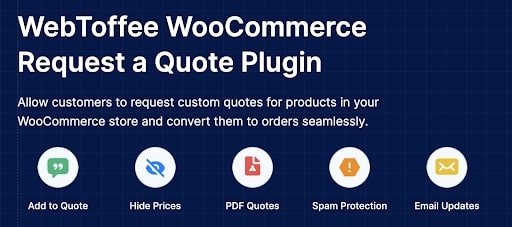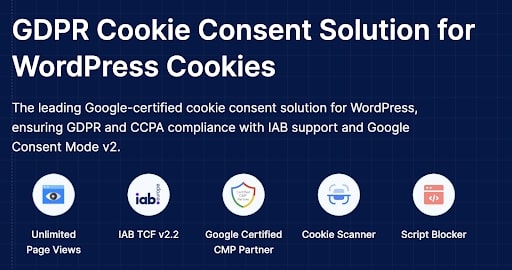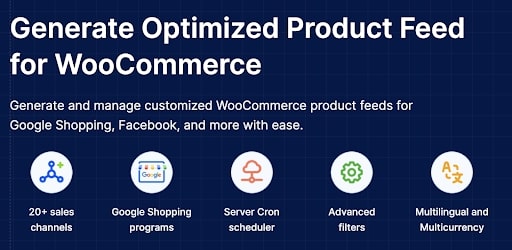The WooCommerce ecosystem has grown into one of the most powerful platforms for building online stores, but its true potential is unlocked through plugins. Every store owner faces different challenges, whether it’s improving marketing efforts, streamlining operations, enhancing customer experience, or ensuring compliance.
The right combination of plugins can make a significant difference in how efficiently your store runs and how well it converts visitors into customers.
15+ Must-Have WordPress Plugins for WooCommerce Stores
Whether you’re looking to fine-tune SEO, automate email marketing, improve checkout processes, or manage orders, this list offers practical solutions for WooCommerce stores of all sizes.
1. Smart Coupons for WooCommerce

Discounts and promotional offers are vital tools for attracting new customers and keeping loyal ones engaged. WooCommerce store owners often seek effective ways to create and manage these incentives. This is where the Smart Coupons for WooCommerce plugin proves incredibly valuable. It enables merchants to offer a wide range of WooCommerce coupons and BOGO deals.
Smart Coupons for WooCommerce lets store owners easily create multiple coupon types from standard discounts to advanced cart-based or order-history-based offers. The plugin enables auto-apply coupons and supports scheduling promotions for later. With this tool, you can personalize the customer experience by offering timely and relevant discounts, such as signup coupons and cart abandonment deals, that drive conversions.
A few key features of this Woo discount rules plugin include store credits, Buy One Get One (BOGO) offers, and adding advanced coupon restrictions. It also supports URL-based coupon application and email delivery of coupons, helping merchants promote offers effectively.
2. Yoast SEO

For any WooCommerce store, appearing in search engine results can have a direct impact on traffic and sales. Without proper SEO practices in place, even the best products can remain undiscovered. Yoast SEO is one of the most trusted plugins for enhancing a WordPress site’s SEO performance.
The plugin helps optimize on-page elements like meta descriptions, headings, and keywords. It offers actionable suggestions to improve content readability and keyword relevance. Additionally, it assists in managing canonical URLs and generating XML sitemaps. With Yoast SEO, even store owners with minimal technical knowledge can improve their search visibility.
3. ECommerce Marketing Automation

Marketing automation can significantly enhance a WooCommerce store’s efficiency by streamlining communication and improving customer engagement. Many businesses face challenges in manually managing emails and marketing campaigns. eCommerce Marketing Automation (EMA) offers a powerful solution to automate these processes effortlessly.
EMA integrates with WooCommerce to enable personalized email marketing, abandoned cart recovery, and post-purchase follow-ups. Store owners can design automated workflows that trigger specific messages based on customer actions.
Among its notable features are pre-built popup automation templates, an email customizer dashboard, and easy integration with WooCommerce. These tools help store owners create targeted campaigns that drive sales and build customer loyalty.
4. Booking for Appointments and Events Calendar

For WooCommerce stores offering services, classes, or appointments, managing bookings online is essential. Customers expect the convenience of scheduling their sessions directly through the website. The Booking for Appointments and Events Calendar plugin provides this functionality on WordPress.
This plugin allows WooCommerce store owners to add an intuitive booking system to their website. Customers can view available time slots, make payments, and manage their bookings. The plugin supports single and recurring appointments, event bookings, and scheduling for team members.
5. Sequential Order for WooCommerce

Order management is a critical aspect of running an online store. WooCommerce assigns non-sequential order numbers by default, which can make tracking and organizing orders difficult. The Sequential Order for WooCommerce plugin addresses this issue by allowing merchants to assign custom, sequential order numbers.
This custom order number plugin replaces the standard WooCommerce order number system with a customizable sequential format. Store owners can set order number prefixes, suffixes, and starting numbers to suit their needs. This simplifies accounting, reporting, and customer communication.
Key features include automatic sequential numbering, customizable order formats, reset WooCommerce order numbers, and more. The plugin helps streamline order processing and enhances record-keeping for WooCommerce stores.
6. Multiple Shipping Addresses for WooCommerce

Online shoppers often want to send products to multiple recipients or locations within a single order. However, WooCommerce supports only one shipping address per order. The Multiple Shipping Addresses for WooCommerce plugin allows customers to add and manage multiple shipping addresses at checkout.
This plugin lets users split their cart and assign different shipping addresses to individual products. Customers can also save multiple addresses to their account for faster checkouts. This functionality enhances customer experience and opens up opportunities for gifting, corporate orders, and bulk purchasing.
7. PDF Invoices and Packing Slips

Generating clean, professional PDF invoices and packing slips is an essential requirement for every store, especially those dealing with wholesale or international customers. The PDF Invoices and Packing Slips plugin for WooCommerce simplifies this process by automatically generating and attaching invoice PDFs to order emails.
This plugin enables merchants to customize invoice templates to match their brand and generate packing slips. It also enables bulk download of invoices and provides compliance-friendly invoice generation for tax and legal requirements. The automation saves valuable time and ensures consistency in documentation.
8. Google Analytics

Understanding customer behavior is crucial for optimizing an online store’s performance. Many WooCommerce merchants use Google Analytics to track site activity, but may struggle with the setup or incomplete tracking. The Google Analytics plugin simplifies the integration process and helps ensure accurate data collection.
This lightweight plugin enables store owners to easily insert their Google Analytics tracking code without editing site files. It supports the advanced features of GA4. This allows for deeper insights into user behavior, conversion paths, and product performance. It gives store owners the insights they need to make informed decisions and improve marketing strategies.
9. WooCommerce Shipping Label

Efficient order fulfillment depends heavily on clear and accurate WooCommerce shipping documentation. Printing shipping labels and delivery notes for each order can be time-consuming and prone to errors. The WooCommerce Shipping Label plugin helps automate this process, improving both accuracy and efficiency.
This plugin allows store owners to print customized shipping labels, dispatch labels, and delivery notes right from the WooCommerce order listing page. Labels can be personalized with store branding, logos, and order details. The plugin also supports bulk printing, which is particularly useful for stores handling large volumes of orders.
Key features include support for generating multiple labels, customizable templates, and multilingual support. It streamlines the shipping process and helps stores maintain a professional image.
10. Schema & Structured Data for WP & AMP

Rich snippets and enhanced search results can boost a store’s visibility on search engines. However, adding structured data can be complex and error-prone. The Schema & Structured Data plugin provides an easy way to implement structured data across a WooCommerce store.
This plugin supports over 35 schema types, including product, review, article, and FAQ schemas. It helps search engines better understand site content, which can improve click-through rates and overall search performance. The plugin also works well with AMP pages, enhancing mobile search visibility.
11. Request a Quote

Many WooCommerce stores, particularly those dealing with B2B or custom orders, benefit from offering customers the option to request a price quote. The Request a Quote plugin enables this functionality by adding a simple, customizable quote request feature to your store.
With this plugin, customers can add products to a quote list instead of the cart. They can then submit their request for a price estimate, which the store admin can review and respond to. This process facilitates communication with potential buyers and helps close deals that require negotiation or special pricing.
Key features include customizable quote forms, an admin quote management dashboard, and the ability to convert quotes into orders.
12. MainWP Child

Managing multiple WordPress and WooCommerce sites can become time-consuming quickly. MainWP Child is a powerful plugin designed to connect WordPress sites with the MainWP Dashboard plugin. This allows users to manage numerous WordPress sites, including WooCommerce stores, centrally.
Once installed, the MainWP Child plugin connects a WooCommerce site to the MainWP Dashboard, enabling centralized updates, backups, user management, and security monitoring. This significantly reduces administrative overhead for businesses or agencies managing multiple storefronts.
13. GDPR Cookie Consent Plugin

Privacy regulations, such as GDPR and CCPA, require websites to obtain user consent before setting cookies. WooCommerce store owners must comply with these laws to avoid penalties. The GDPR Cookie Consent Plugin helps automate cookie consent management and ensures cookie compliance.
The plugin enables store owners to display customizable cookie consent banners, giving visitors the option to accept or reject cookies. It also provides automatic cookie scanning and categorization, helping businesses stay aligned with regulatory requirements. The plugin supports multilingual stores and works well with popular page builders.
Key features include auto-blocking of third-party cookies, granular cookie control, and comprehensive consent log reports. It offers peace of mind for store owners and a transparent experience for customers.
14. WooCommerce Stripe Payment Gateway

Offering secure and convenient payment options is critical to increasing conversions in any WooCommerce store. WooCommerce Stripe Payment Gateway allows store owners to accept credit card payments right on their site through Stripe’s trusted payment processing platform.
The plugin supports one-click payments, Apple Pay, Google Pay, and various local payment methods. Keeping customers on the site during checkout helps reduce cart abandonment and provides a smooth purchasing experience. Stripe’s advanced fraud detection adds an extra layer of security to transactions.
15. Product Import Export for WooCommerce

Managing large catalogs in a WooCommerce store often requires bulk importing and exporting of product data. Doing this manually can be tedious and error-prone. The Product Import Export for WooCommerce plugin simplifies this process by providing an efficient way to handle product data in bulk.
Store owners can easily export product lists in CSV format for backup or migration purposes. The WooCommerce Product Import Export plugin also supports importing product data from CSV files, allowing for quick catalog updates. It handles all product types, including variable and grouped products.
Key features include scheduled imports and exports and automatic column mapping. It saves valuable time and reduces errors during product data management.
16. Variation Swatches for WooCommerce by CartFlows

When selling variable products, such as clothing in different colors or sizes, it’s important to present options in a clear and visually engaging way. The default WooCommerce dropdown menus can feel limiting. The Variation Swatches for WooCommerce by CartFlows plugin offers an enhanced way to display product variations.
With this plugin, store owners can replace standard dropdowns with color swatches, image swatches, or label buttons. This improves the product page experience and makes it easier for customers to understand and choose available options. Better visualization of variations can lead to higher conversions.
17. WooCommerce Product Feed

Marketing products across multiple sales channels requires accurate and optimized product feeds. Managing this can be complex and time-consuming. The WooCommerce Product Feed plugin simplifies the process of creating high-quality product feeds for platforms like Google Shopping Feed, Facebook, Bing, and more.
This plugin enables store owners to generate optimized feeds in various formats (XML, CSV, TSV) with customizable fields and filters. It ensures that product data is kept up-to-date across marketing channels, helping to improve visibility and sales performance. The plugin also offers advanced category mapping options to meet various channel requirements.
Key features include automated feed updates, support for multiple sales channels, and granular feed configuration.
Conclusion
Choosing the right plugins can be a game-changer for your WooCommerce store’s success. As you’ve seen, there are tools available for nearly every aspect of store management, from improving search visibility and simplifying product management to enhancing customer interactions and ensuring regulatory compliance.
The plugins listed above are trusted by thousands of merchants and have proven their value in real-world applications within the eCommerce niche.
Keep in mind that every store is unique, and the best plugin mix depends on your specific needs and business goals. Start by identifying the areas where your store can improve the most, and select the plugins that will help address those priorities.
